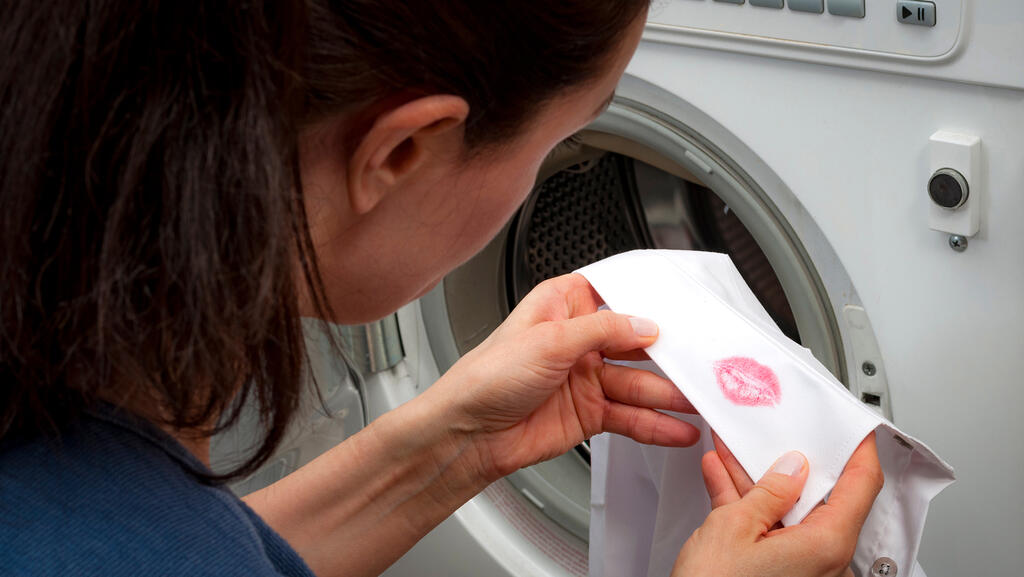Getting your Trinity Audio player ready...
The definition of love according to Dr. Liat Yakir, a molecular geneticist who specializes in the study of love and emotion, is first and foremost an evolutionary necessity. In honor of Valentine's Day, here are 16 things Dr. Yakir wants you to know about dating, love, intimacy, and breakups.
1. We create love
Many of our love-related actions cause us to release oxytocin, AKA the love hormone. Oxytocin is released when we look each other in the eyes, touch each other, and amid sexual touch and orgasmic climax. This also occurs when we express empathy, listen to music, and when receiving a good word.
Oxytocin is related to attachment, and is most detectable in women during childbirth, and while breastfeeding. This hormone exists in all mammals, and prior to previous inferences, we know today that though women release more of it, it exists in both genders.
2. In order to maintain love, we must nurture it
Oxytocin stays in our blood for a short six minutes, therefore, if we want the feeling it provides, we must make sure it's released constantly. This doesn't go to say we should be touching each other all day, rather, keep in touch throughout the day. Failing to upkeep the relationship on a daily basis could lead to declining attachment, thus in Oxytocin release. The bottom line: Less Oxytocin = less love = potential breakup. We warned you!
3. Orgasms can help us fall in love
Sexual relations are an important part of intimacy and attachment. Our minds' tendency to go crazy while engaging in intercourse is a sign of evolutionary enforcement of reproduction. Orgasms are accompanied by an explosion of oxytocin that is followed by the release of dopamine, and our brain learns to associate sexual pleasure to the sight, taste, and smell of our partner. Our brains essentially tell us "this person brings me pleasure."
There is a significant difference in the emotions of partners before and after they get into bed. Still so, it's not a bad idea to miss each other here and there, so don't go overboard with the sex.
4. Sex on the first date is detrimental to attachment
We know we said that orgasms help us fall in love, but in order to create love, we need attachment. If all we needed was orgasms, we wouldn't need anyone besides ourselves, and wouldn't that make us all fall in love with ourselves then? Well, no. In order to fall in love, there must be oxytocin released before intercourse, so it's important we get to know each other before getting in the sack. Don't worry, this part of the process doesn't need to last too long. Our brain just needs to internalize the look, voice, and personality of our partner. So, if you really want to create attachment, wait with the sex. Sexual excitement tends to decline with time, leaving us only with attachment, which is more than enough to keep a relationship on the right track.
Nonetheless, it could be important to engage in non-committing sexual relations here and there if you find it important to explore your sexuality and learn what you like. This could diminish the FOMO feeling in a relationship, and cause you to be content with your partner.
5. We're essentially attracted to looks, amongst other things
In heterosexual love, women are 90% attracted to testosterone associations, expressed through toned muscles for example, and men are attracted to estrogen. The first thing we notice about someone is their looks. This is simply an evolutionary mechanism that was meant to help us choose a potential partner qualified for fertility. Face symmetry and a developed body are indicators of sufficient embryotic development, therefore making a person appear to be qualified and attractive, making us want to reproduce and bear healthy children.
However, we've all experienced attraction that ended the second after the first kiss. This is normal. We have a mechanism that is repulsed by smell and germs. During a kiss, about 50 million germs are passed along, subconsciously telling us a lot about the health of our partner. In addition, the body has 400 scent receptors (as opposed to only three eyesight receptors). This is also an evolutionary survival mechanism involving immune systems — we are essentially subconsciously smelling our partners' immune system.
6. Our brain's frontal lobe binds our sexual behavior
We love our parents, our brothers, our cousins, and our friends, and often feel very strong emotions of love towards them; the same oxytocin is released in these cases. So what stops us from engaging in sexual or romantic relationships with them? Although our brains may experience attraction and sexual arousal, we have checks and balances. The mechanism works hand in hand with the social taboo embedded in our frontal lobes, which is in charge of our judgment abilities and supervises our actions. This makes oxytocin dependent on context, thus non-romantic context turns on this part of our brain and turns off sexual attraction in certain circumstances.
7. Women need more signals than men in order to experience attraction
Studies reveal that women need stronger signals in order to be attracted, as opposed to men who need a pretty minimal amount. In this aspect, women's brains are different from men's. In a study about sexual stimulation in both men and women, researchers saw in MRI scans that the frontal lobe was turned off in men the minute there was sexual arousal, as opposed to women whose frontal lobe was turned off only after orgasm. In short, during intercourse, men forget all their worries, and women only do so after climaxing.
Why is that? Again, evolution comes into play. While the man's biological purpose was originally to spread as many sperms as possible to as many women as possible, women had to be selective given they had to bear the consequences for at least the upcoming 9 months, and potentially for a whole life ahead. This also proves why it's harder for women to orgasm.
8. Love calms our nervous system
Women have a vagus nerve, which helps us understand the phenomenon of being sexually turned on at unexplained times. This nerve functions as a response to oxytocin, like when someone smiles at us for instance. Anything that makes women feel calm and safe could cause the vagus nerve to turn on. This is how love works — we feel love and security by knowing our partner loves us and looks out for us.
9. There's no such thing as love at first sight
This simply doesn't make sense biologically. Our brains make their first impression of someone in the first 30 seconds of an interaction, but this isn't enough time to make enough oxytocin. This is enough reason to give someone a few tries, rather than cutting it short after the first date. The oxytocin will do what it does, and build that euphoric feeling that leads to love.
10. Our brain attracts us to what's different, but we should stick with what's similar
"Opposites attract" makes sense on the evolutionary level of gene versatility, but studies show that the relationships that last longer are actually those in which the partners are similar — both physically and personality-wise. The ability to overcome obstacles is stronger when partners are like-minded, rather than when basic instincts of our brains clash.
11. Our brain is what makes 'hard to get' attractive
Some of us still reminisce on memories with our exes. There's nothing wrong with that, it's simply our brain messing with us. Our brain is built in a hierarchal way, telling us that when something is harder to attain, we want it more.
We can split this into two romantic rules: first is the social status rule — the harder someone is to get, the more interest the other side will show. The second rule is "the swing rule" — the harder someone tries to get you, the more likely you are to push them away. Our behavior changes in response to the other side — evolution says so.
12. Not all of us are monogamous
Does polyamory have genetic grounds? Indeed it does. Hormones have receptors that allow them to create paths in the human body. About 20% of the population has a different dopamine receptor, meaning that section of the population needs more dopamine to create paths in the cells. People falling under this category will usually be risk-takers, with a higher tendency to enjoy extreme sports. Romantically speaking, these people will have a hard time managing a monogamous relationship and could be two times more likely to cheat.
13. Dating apps aren't interested in you finding love
If you find love, you'll delete the app. It's as simple as that. The app is meant to arouse dopamine through addiction, rather than love. The more we get swiped right, the higher the dopamine rush we'll get and the more we'll want to stay on the app. This has nothing to do with love, but rather with self-perception and confidence.
In addition, these apps provide endless stimuli that overwhelm our brains. Having 20 messages from attractive potential partners in our inbox causes our emotional brain to overrule the thinking brain, and distracts us from focusing on really getting to know one another. This is simply an overload of shallow information that we don't really have the ability to process and internalize.
14. Our brain isn't built for dating apps
Let's say you went over 100 profiles, matched with 20, started a conversation with 5, and finally were left with one charming and attractive match. Their texts and phone calls don't disappoint, you're feeling anticipation and releasing plenty of dopamine. You expect to be swept off your feet when you finally meet up... and then boom! In comes your brain to ruin the fun, and the date doesn't live up to your expectations, and you experience disappointment. Is our brain then capable of shaking it off and doing it all over again? Not exactly. Well, at least not in the same capacity. Our brains become indifferent to these experiences, and we lose the charm after a while.
15. Meeting someone through mutual friends increases the chances of finding love
It was you who chose your friends to be a part of your life, so chances are their choices of friends will line up with yours. So don't be so quick to pass up an offer to be set up with a friend of a friend. A study that surveyed 8,000 couples, found that 4,000 of them met online and 4,000 met in person, and those who met online had a 3 times higher chance of breaking up. The reason? Meeting someone online meant there was no connecting friend group between the partners.
16. But maybe there are science-based apps that can lead us to love
The fields of algotech or lovetech are still nascent, and could potentially change the way we look at dating apps. These innovative apps will make matches based on biological and genetic data. This way, we can scientifically find love.










